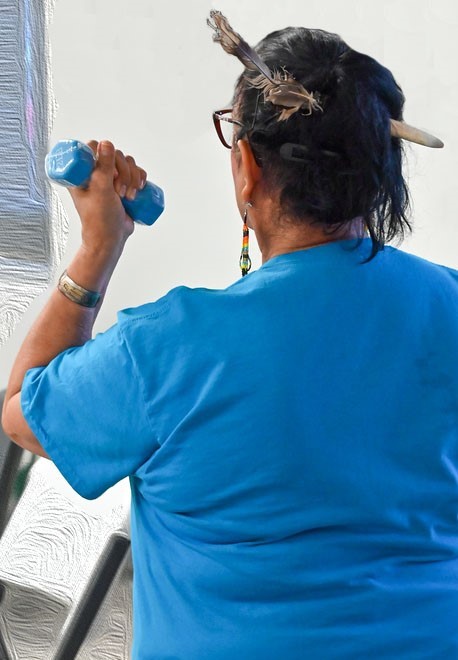Gerischolar Accomplishments
Enhancing Geriatric Care

In June of 2023, the first cohort of Indian Health Geriatric Scholars from IHS, Tribal, and Urban Indian Health programs in five IHS areas met to share their projects aimed at improving the care of older patients they serve.
Each GeriScholar completed a week-long intensive training in geriatrics and used the knowledge gained to implement a project to improve the care of older adults in their facilities. They shared projects addressing dementia detection and recognition, medication safety, and fall prevention. The primary care physicians, NPs, PAs, and pharmacists involved in the program are dedicated to excellence and committed to the well-being of this vulnerable population, which is an inspiring example for healthcare professionals across the system.
The completed projects from the Indian Health GeriScholars reflect the dedication to providing quality healthcare and promoting well-being in the I/T/U health system for older adults.
Strength Training and Healthy Aging
- One GeriScholar launched an initiative to promote the importance of strength training for older adults. She made educational resources and personalized fitness routines available to promote strength training as a crucial aspect of healthy aging.
Comprehensive Medication Management
- The first project aimed to provide patients comprehensive information about their medications, maintain an up-to-date medication list, and conduct detailed medication reconciliation. This project helped to improve patient safety.
- The second project focused on minimizing medication errors and reducing the need for pharmacist interventions for long-term care patients using two pharmacies. This project streamlined the procedures and further strengthened patient safety.
Dementia Care Optimization

- One team enhanced the clinical care teams' understanding of the significance of dementia screenings for patients with memory concerns, leading to an increase in Mini-Mental Status Exam completion rates. This was achieved through practical staff training on documentation standards using the existing workflow templates.
- Another project initiated the use of the Mini-Cog screening tool for early detection of cognitive decline, which aims to increase Alzheimer's Disease and Related Dementias awareness among clinical teams. This awareness helps provide comprehensive support to patients, including appropriate services such as home health nursing, therapeutic referrals, and caregiver information.
- A GeriScholar has successfully established and standardized a method for documenting dementia screening results within the Electronic Health Record system, leading to more efficient referrals to programs that offer essential support and services to caregivers.
- Last, a project by a group of GeriScholars heightened primary care providers' awareness of dementia-focused pharmacy services, resulting in increased use of the Mini-Cog screening tool, streamlined pharmacy-based care, improved patient support, and fostered interdisciplinary collaborations, collectively advancing a comprehensive approach to dementia care.


